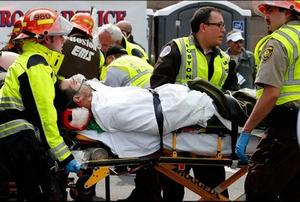PreparednessEmergency readiness of health-care providers
In 2013 the Centers for Medicare and Medicaid Services(CMS) proposed new preparedness requirements for hospitals and sixteen other types of health care providers, including home health agencies, nursing homes, hospices, transplant centers, and community mental health facilities, to mitigate natural and man-made disasters. Health-care providers say these requirements are too costly.

Healthcare providers object to standards on basis of cost // Source: sina.com.cn
In 2013 the Centers for Medicare and Medicaid Services (CMS) proposed new preparedness requirements for hospitals and sixteen other types of health care providers, including home health agencies, nursing homes, hospices, transplant centers, and community mental health facilities, to mitigate disasters like the Boston Marathon bombings and natural disasters like hurricanes Katrina and Sandy. Several of the requirements are specific to the needs of the facilities, but health care providers accepting federal and state funds would have to develop a preparedness plan incorporating four components of emergency preparedness: risk assessment and planning; policies and procedures; communication plans; and training and testing.
Health care providers are concerned that requirements including updating old emergency power systems to keep air conditioning and heating units working, maintaining food and drink on hand for staff and patients, and maintaining sewage and waste disposal during a power outage, could prove costly. According to Emergency Management, CMS estimated the cost of implementing the requirements to be roughly $225 million for the first year and $41 million for each subsequent year, and the average cost for a hospital would be $8,000 a year. The American Hospital Association (AHA) claims CMS has underestimated the cost and burden for hospitals to comply with the requirements.
In a letter to CMS, AHA points out that a large number of health care providers have adopted emergency preparedness guidelines proposed by the Joint Commission, a nonprofit that accredits and certifies more than 20,000 health care organizations, in response to Hurricane Katrina and other disasters. CMS in response notes that not all health care providers are accredited or meet the standards set by the Joint Commission. Additionally, various state, local, and federal laws and guidelines fail to mandate sufficient emergency preparedness guidelines.
CMS closed its open comment and question period on the proposal at the end of March 2014. The agency has yet to release its final requirements.
